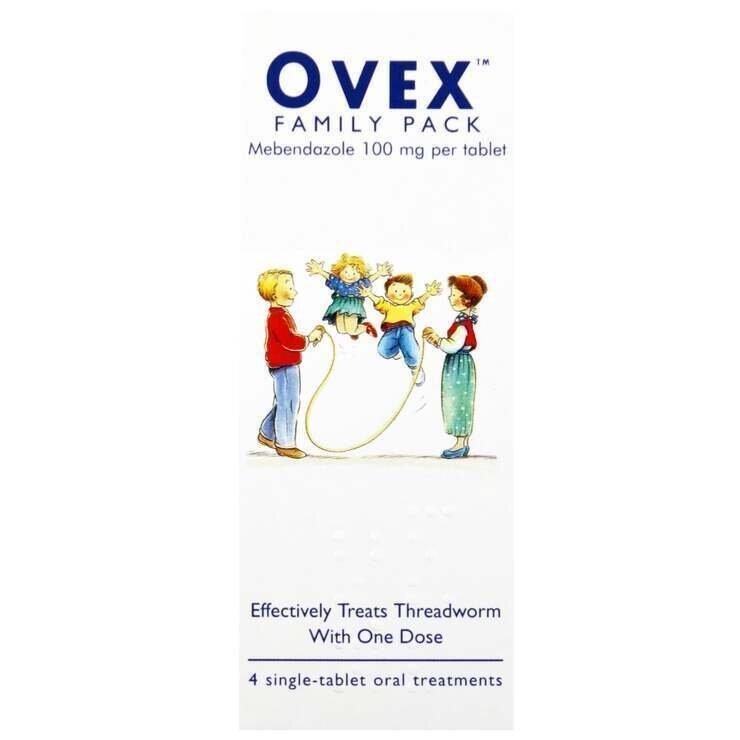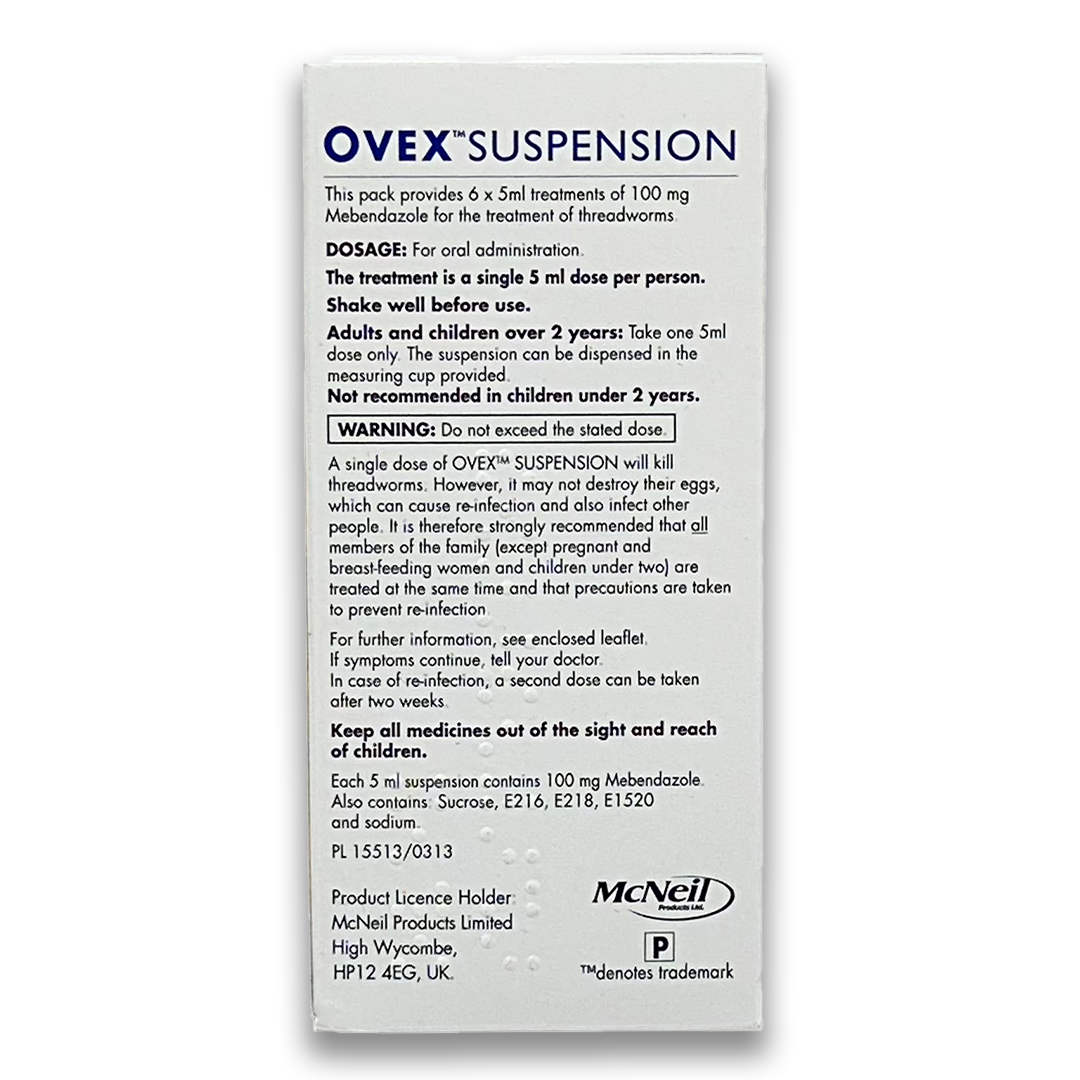Ovex Suspension 30ml Family Pack


About Thread Worm
Cause
Diagnosis
Treatments
Prevention
Further Info
FAQs
Can Threadworm Infections Resolve on Their Own Without Medication?
Is Mebendazole Safe for Children?
What Should I Do if I Suspect My Child Has a Threadworm Infection?
Can Threadworms Spread to Other Parts of the Body?
We are here to help 👋
For assistance, please contact our customer service at info@rightangled.com. We are available Monday to Friday from 8 am to 5 pm. For urgent issues, please do not use this email. Instead, call 111, or dial 999 in case of an emergency.





